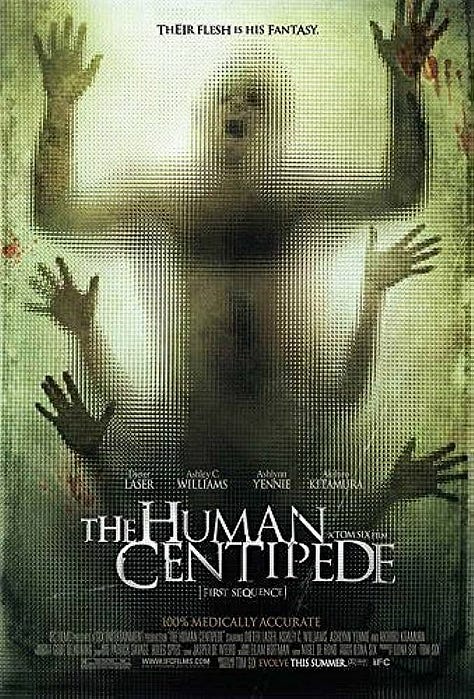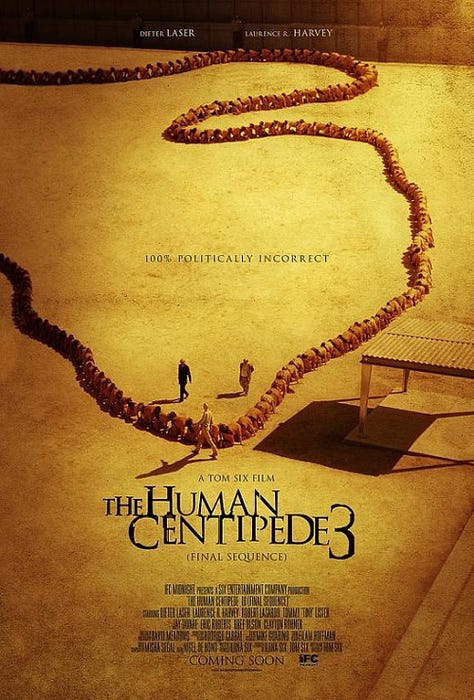Last week I redefined rejection and changed how you feel about it.
My no. 1 piece of unsolicited writing advice is to get good at rejection. This is the real art. This is the job.
2. Remind
What is the writer’s job, exactly?
The job isn’t to publish.
The job is to write and to rewrite. The job is to write well by writing a lot that is very bad. The job is to write stuff nobody may read.
The job is to get strangers to fall in love with you without you leaving your apartment.
The job is to persevere so that your writing may exist to be rejected. (And perseverance is the war you wage on rejection.) No one will see this part of the job, and the job is to accept that.
The job is to laboriously attend to the page. The job is to “work with a demented singularity of purpose,” says Annie Dillard. The job is to work on one sentence for two weeks only to delete it.
The job is to get stuck, blocked, confused, horny, emotional, horny, sleepy, exhausted, and horny.
The job is to figure out how to get unstuck, and to forget, but then remember, but then forget, but then remember.
The job is to start over. The job is to change direction, tense, POV, font, thesis, structure, punctuation, word choice, word count, title, subtitle, bio, agent, endings, beginnings, and middles. The job is to lose the plot, and the job is to find it. The job is to rework and regroup, to stop and to come back, to decide to go to graduate school and to undecide that.
The job is to learn how to use Scrivener.
The job is to learn how to write and to learn from your writing. “Your job is to learn to work on your work,” writes David Bayles and Ted Orland in Art & Fear (11/10 recommend).
The job is to write well, because it’s the best revenge.
The job is to SHOW THEM THAT THEY DON’T OWN YOU.
The job is to stay home on weekends and national holidays to turn your thoughts and feelings into art, which an editor will one day cut and call “unnecessary.”
The job is to risk: to risk writing your story in your words in your voice and to risk giving readers the power to comment, “I didn’t like it” or to say nothing at all.
The job is to make every mistake.
The job is to just show it to somebody else already.
The job is to make all your exes fall to their knees and crawl back to you with the realization of how deeply they fucked up, and then the job is to say, “Who dis?”
The job isn’t to become famous. The job is like any other job. (Except better.) (And worse.)
The job is to submit and to resubmit, ad infinitum.
The job is to get rejected.
The job is to be lucky. (Writing takes persistence because publishing takes luck.)
OK, literally the job is to publish, but adopt this mindset from Friday Night Lights: success is a byproduct. And from
: transcendence is in the effort.And one last thing: the job is to use better words and phrases.
3. Replace
I listen to a podcast on the law of attraction, so I know that talking about experience changes the experience and that emotions are composed of how we express them and that our cells react to everything we say.
Submittable doesn’t call rejections “rejections.” There’s no “reject” button to dismiss someone’s writing/soul as “inadequate, inappropriate, or not to one’s taste.” There’s a button to “decline,” a polite refusal to publish. As an editor, I take it a step beyond and call declines “non-acceptances” because “not accepted” (so casual) vs. “rejected” (so fatal) feels 50% better.
Replace the word “rejection” with these better-feeling phrases:
“They passed.”
“It wasn’t a fit.”
“It wasn’t for their audience.”
“It wasn’t the editor’s taste.”
“They didn’t get it.”
“This isn’t my only opportunity.”
“It’s not that deep.”
“It’s one person’s opinion.”
“Thank god I have the chance to revise and submit elsewhere.”
“The Human Centipede 1, 2, and 3 got made.”



BONUS “R”: While you’re at it, rephrase.
It’s not happening to you; it’s happening for you, per Oprah.
“You don’t get the Burn you want; you get the Burn you need,” per a man at Burning Man on a TikTok I tried not to watch.
What am I missing?
Get rejected less by writing better by taking my upcoming seminars:
How to Write a Tragicomic Memoir: a Seminar
October 8th (Sunday)
2-5pm EST
Online, via Writing Workshops
Learn to make readers laugh while RIPPING OUT THEIR HEARTS in a full-length sad, funny book about yourself and your exes. I’ll go through all my rejections and what they taught me about how to write a book.
*
The Art of Rejection: a Masterclass
October 17th (Tuesday)
7-9pm EST
Online, via Quebec Writers’ Federation
Like this newsletter but with handouts, my face and voice, brainstorming exercises, 10x more information, an AMA, and a cameo by my dog.
Everyone is invited to Must Love Memoir (free), starring Sasha Vasilyuk, Elizabeth Owuor,
, Dionne Ford, and me, hosted by Krystal Marie Orwig:ICYMI: I’m Elissa Bassist, and I teach short conceptual humor/satire writing, funny personal essays, tragicomic memoir, emotional emails, and that’s it. I teach in person and online at The New School, 92NY, Lighthouse Writers Workshop, Writing Workshops, and elsewhere. I founded and edit the “Funny Women” column on The Rumpus, and I wrote the award-deserving book Hysterical. I am probably my therapist’s favorite.
Smash:
Smash:
Smash:
(Consider smashing “paid” because I’m building something here and could truly, madly, deeply use your support.)
And smash that heart button to help people in the Substack Multiverse find this newsletter.







That was brilliant....
unless I missed it, you may have overlooked one very important aspect.
To please yourself first!
(Take it from an old broad like me, you can squeeze yourself into righteous indignation trying to please the 'norm'.)
Love this. Needed this. FYI: I call them rejonktions.